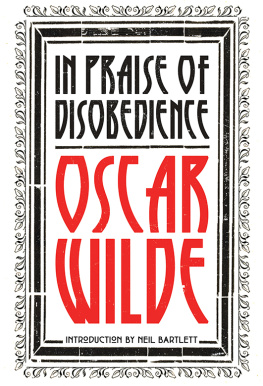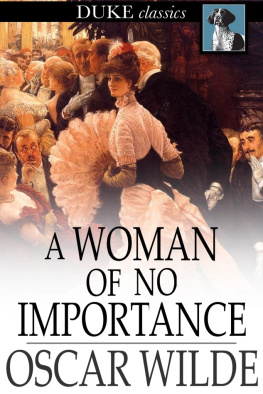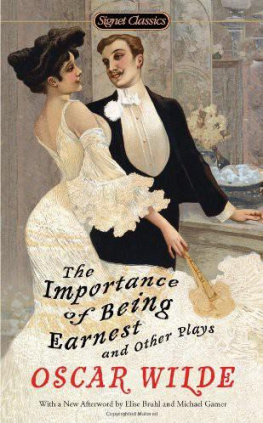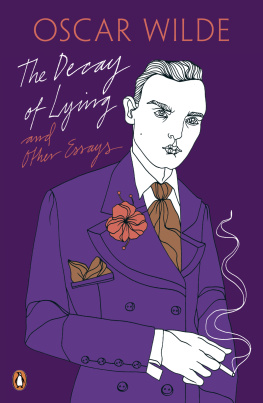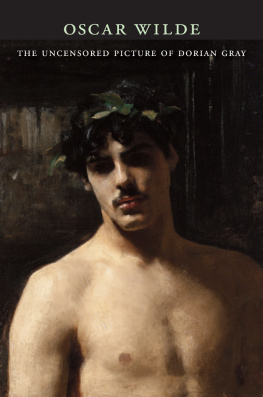OSCAR WILDE
A Life From Beginning to End
Copyright 2018 by Hourly History.
All rights reserved.
Table of Contents
Introduction
The life of Oscar Wilde was a short one. But in his 46 years, he wrote what would become some of the most famous literary pieces in the world. An Irish poet and playwright, Wilde was known mostly for his plays, epigrams, and his novel The Picture of Dorian Gray. He also became highly known for his support of the philosophy of aestheticism. Wilde mastered the art of focusing mostly on the beauty of his work even though he also combined the beauty with moral undertones. Outside of his work and his philosophical beliefs, he was known to be quite flamboyant, an extreme individualist, and a showy dresser.
Wildes life wasnt one that was calm and without controversy. His sexuality was a major player in what brought controversy into his life. He lived at a time when homosexuality was not accepted at all, and there were even laws against homosexual sex. Wilde would eventually end up on trial for his sexual behavior where he was found guilty and sentenced to prison. He was still able to write while in confinement, and that time led to the writing of one of Wildes famous poems, The Ballad of Reading Gaol . But the time in prison also led to what some think attributed to the death of Oscar Wilde; Wilde suffered a ruptured eardrum that experts think may have been the cause for his later illness that ultimately killed him.
Oscar Wildes works are timeless and meant for everyone. He wrote in the late nineteenth century, a time when commoners in England were finally able to have access to the literature and arts that only the wealthy and the royal were privileged to before. Today, his influence can be found easily; one of his plays is even being turned into a box office movie. Discover the man behind the poems and plays in this book covering Oscar Wildes life, beginning to end.
Chapter One
Blue China and Long Hair
I wont be an Oxford don anyhow. Ill be a poet, a writer, a dramatist. Somehow or other Ill be famous, and if not famous, Ill be notorious.
Oscar Wilde
Oscar Fingal OFlahertie Wills Wilde was born in Dublin, Ireland to two societal and successful parents on October 16, 1854. His father was the top oto-ophthalmologic (ear and eye) surgeon of the time. He was even knighted as Sir William Wilde for his services during his time as an assistant commissioner and medical adviser to the Irish census. Sir Wilde was also held in high regard for his work with the poor people living behind Trinity College in Dublin. He did some of his own writing as well, publishing books on archeology as well as Irish folklore.
Wildes mother, Jane, was from an Italian background and a writer in her own right. She wrote under the pseudonym Speranza. Her poems were written for the Young Irelanders, an Irish political and social movement group that she supported. She herself was an Irish nationalist for life. Jane read her poems, along with other poems from the Young Irelanders, to her sons, Oscar and Willie, cultivating a love of poetry in her sons from an early age.
Wildes parents had him baptized at St. Marks Church, Dublin, the local Anglican Church. There are also records showing he had a second baptism performed by a Catholic priest. A friend of Wildes mother, Father Prideaux Fox, reported having baptized the two Wilde boys with their mother present. Father Fox said in regard to the baptisms, I am not sure if she ever became a Catholic herself, but it was not long before she asked me to instruct two of her children, one of them being the future erratic genius, Oscar Wilde. After a few weeks I baptized these two children, Lady Wilde herself being present on the occasion.
Wilde had two full siblings, whom he grew up with, and three half-siblings that Sir Wilde had fathered before he was married. While Wilde wasnt raised with his half-siblings, his father did support those three children financially. At home, Wilde was the middle child. He had an older brother named William Willie Wilde and a younger sister named Isola Wilde. His half siblings were Henry Wilson who was born in 1838, Emily Wilde who was born in 1847, and Mary Wilde who was born in 1849. There were three mothers between the six children that Sir Wilde fathered.
When Oscar was born, the family lived at 21 Westland Row in Dublinthe site of the Oscar Wilde Centre at Trinity College today. When Wilde was only one year of age, the family moved to a larger home at No. 1 Merrion Square. This house ended up becoming somewhat of a medical clinic while at the same time providing a home for the Wilde family. During the early part of his life, Wilde was homeschooled. He was taught by a German governess and a French bonne until he was nine years old. His two teachers taught Wilde their respective languages, so he was fluent in both French and German. After homeschooling, Wilde went to Portora Royal School located in Enniskillen, County Fermanagh. He attended that school from 1864 to 1871.
In 1866, during his time at Portora Royal School, Wildes sister Isola died of meningitis. She was only nine years old. Wilde wrote a poem in memory of his sister called Requiescat. It was later published in a book of poems, titled simply Poems, in 1881.
Wilde was a good student and eventually received a royal scholarship to attend Trinity College in Dublin. He was to read classics there from 1871 to 1874. Wilde roomed with his older brother Willie and became very interested in Greek literature during this time. He even helped one of histutors, J. P. Mahaffy, to write one of his books titled Social Life in Greece. Wilde looked up to Mahaffy in school, calling him his first and best teacher and crediting him for his love of all things Greek. Later on, however, there would be a strain in their relationship. Mahaffy reportedly said that Wilde was the only blot on my tutorship.
At Trinity College, Wilde was a member of the University Philosophical Society. It was during his time at Trinity that he established himself as a supporter of aestheticism; he wrote a paper on the subject called Aesthetic Morality. Wilde was top of his class, won a scholarship, and was awarded the Berkeley Gold Medal. The medal was the highest award for academics given by the university in Greek. Because he was such an excellent student, Wilde was urged to try for a demyship to attend Magdalen College in Oxford. He was granted the demyship and started the next phase of his life at Magdalen College in 1874.
Wilde would read Greats and further his education at Magdalen until 1878. While there, his interest was peaked by the Apollo Masonic Lodge. He liked the idea of ritual, the secrecy involved with the group, and the dress they wore. Wilde sought to join the Lodge and was granted entrance. It didnt take him long to earn the title of Sublime Degree of Master Mason. Wilde would not remain a Mason for long, however, as his interest waned when he left Oxford. He let his Lodge membership go by not paying his membership dues.
Catholicism, on the other hand, was something Wilde had spent a lot of time considering. He expressed wanting to convert to those around him and had even gone to speak to some clergy members about it. In 1877 and 1878, Wilde spent a lot of time meeting with Catholic clergy members and reading Catholic literature. He met with Reverend Sebastian Bowden even, who had successfully assisted in converting several high-profile people to Catholicism. Reverend Bowden and Wilde set a date for Wildes baptism to be received into the Catholic Church. Wildes father was not supportive of this plan at all. Sir Wilde threatened his son by telling him he would cut off the financial support he had been providing if he went through with the conversion. Wilde persisted with his scheduled conversion until the last minute, but in the end, he did not show up for his baptism and sent the reverend flowers instead. Despite his failure to convert to the religion, Wilde remained interested in Catholic theology.

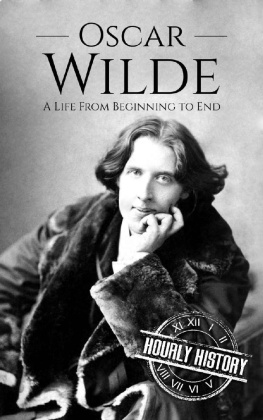
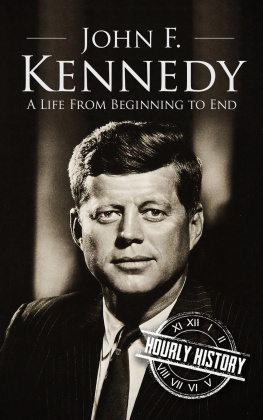



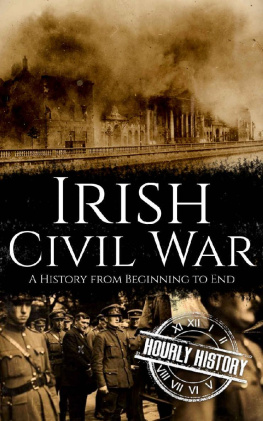

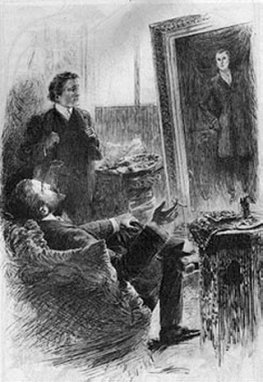

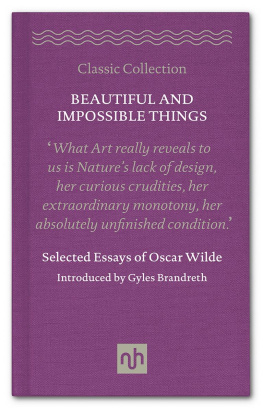
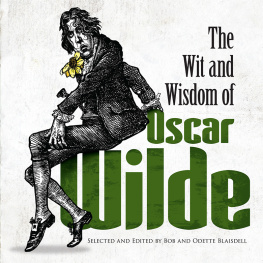
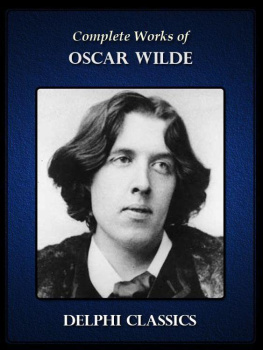
![Wilde Oscar - The secret life of Oscar Wilde: [an intimate biography]](/uploads/posts/book/228457/thumbs/wilde-oscar-the-secret-life-of-oscar-wilde-an.jpg)
